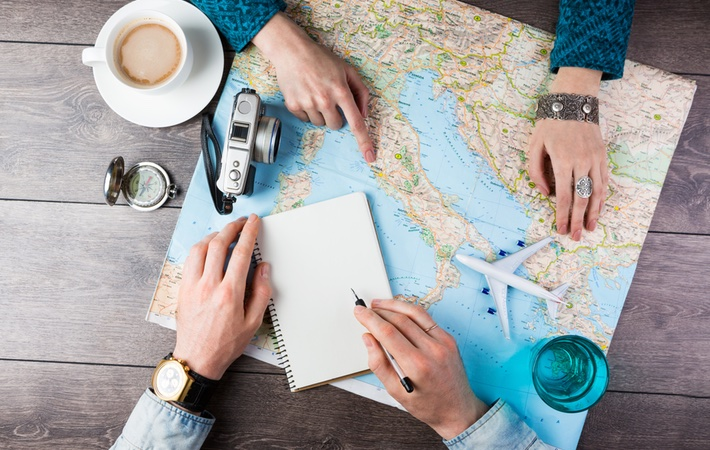
When the holiday season arrives, travel throughout the nation surges. This has given rise to a variety of travel-related phrases, such as “special forces-style travel” and “check-in”. However, beyond these trending online terms, there are some long-existing Chinese idioms that are used when talking about travel.
Travel day and night
For enthusiasts of “special forces-style tourism,” time is of great importance. To visit as many places as possible, they carefully plan their trips in advance, requiring early starts and late finishes each day. They might even forgo sleep to travel through the night. This style of tourism can be summarized by the idiom “travel day and night”: to travel continuously, regardless of the hour. Despite the exhaustion, visiting a lot of places of interest in a brief period brings them significant fulfillment.
Leisurely exploring mountains and rivers
However, for some individuals, the essence of travel lies in relaxation. These travelers prefer to take it easy, enjoying their sightseeing as it comes. Thus, even if their journey includes hiking up mountains and descending along rivers, it can be described as “leisurely exploring mountains and rivers”.
Flower viewing from horseback
In recent years, “check-in tourism” has grown increasingly popular, particularly among younger generations. They prepare a list of trendy destinations and visit each one by one to take photos and share them on social media. While this approach satisfies the urge to document and share their experiences, it raises questions about how deeply these travelers can appreciate a place’s charm or history. The idiom “flower viewing from horseback” vividly illustrates this phenomenon.
Not putting a foot outside
Regardless of how you choose to travel, everyone seeks joy and fulfillment during this holiday. Even if you choose to stay at home, there’s an idiom that suits you perfectly: not putting a foot outside. After all, sometimes steering clear of the crowds can be the most relaxing choice of all.
原创编写 版权所有 侵权必究! 每日更新 个性化阅读 英语飙升!
1.1. Which of the following can replace the underlined word “forgo”?
A Fill up.
B Give up.
C Make up.
D Slow up.
解析:选B。词义猜测题。根据后面的“travel through the night”和“travel continuously, regardless of the hour”可知,这些特种兵式旅游的人放弃了睡眠。故选B。
2.2. What can be inferred about the travelers who prefer “leisurely exploring mountains and rivers”?
A They enjoy a relaxed pace and appreciate the scenery.
B They are interested in visiting many places in a short time.
C They focus on taking photos for social media.
D They avoid traveling during the Spring Festival holiday.
解析:选A。推理判断题。根据第三段的“These travelers prefer to take it easy, enjoying their sightseeing as it comes.”可知,喜欢“游山玩水”的人更倾向于轻松地享受旅行,欣赏沿途的风景,这表明他们享受的是旅行中的放松和对美景的欣赏,而不是匆忙地参观多个地方或专注于社交媒体上的分享。故选A。
3.3. According to the text, how do “check-in tourists” usually travel?
A By focusing on in-depth exploration of each destination.
B By staying at home and avoiding crowds.
C By visiting famous destinations to take photos and share online.
D By traveling continuously day and night.
解析:选C。细节理解题。根据第四段的“They prepare a list of trendy destinations and visit each one by one to take photos and share them on social media.”可知,“打卡旅游”的游客通常会访问当地著名的目的地并拍照分享在社交媒体上。故选C。
4.4. What is the meaning of the idiom “not putting a foot outside”?
A To travel extensively without rest.
B To visit many places quickly.
C To explore nature on foot.
D To stay at home and not go out.
解析:选D。细节理解题。根据最后一段内容可知,“足不出户”意味着“不迈出家门”,适用于那些选择在家度过假期的人。故选D。